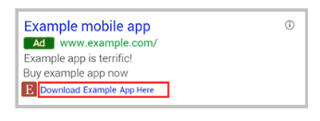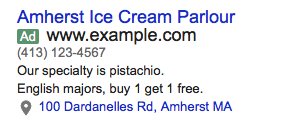A successful digital ad campaign is all about providing as direct a connection between active patients and your practice as possible — here’s why Google’s Ad Extensions are the perfect tools for the job.
When you’re targeting prospective patients with paid search advertising campaigns, your most valuable targets aren’t the users who are conducting symptom-related, diagnostic research online — they’re the ones who are actively seeking treatment options online and ready to book an appointment. And in order to not only capture the attention of these active patients, but also get them to convert, you need to make sure you’re minimizing the amount of effort and time it takes them to connect directly with your practice.
In the age of consumer-driven healthcare, patients are taking control of their path to treatment and making their own decisions. With so many options for care at their disposal, the last thing you want to do is force patients to jump through hoop after hoop just to find a phone number or book an appointment. As such, your search ads should inform these patients that you provide exactly what it is they’re looking for, then immediately prompt them to convert within a single step. There’s perhaps no better tool in the search marketer’s arsenal to achieve this than Google’s ad extensions.
What Are Ad Extensions?
Google ad extensions allow you to place additional, helpful information regarding your medical practice or organization within your search engine ad. That information can do a lot to motivate those patients nearing the bottom of the funnel by directly connecting them to your practice or hospital, or potentially providing them with that last bit of information they need to make a decision.
In addition, the mere fact that ad extensions occupy more space on results pages means that they considerably boost your online visibility. Ad extensions are free, but advertisers are charged for clicks on individual extensions like phone, app store, and map links.
Which Extension Should I Choose?
There are five different kinds of manual ad extensions that you can create with AdWords:





(all ad examples taken from Google)
Remember that success will require constant testing and retesting of different versions of your keywords and ad copy. Split or A/B test several different iterations of all the preceding campaign components to maximize your click-through and conversion rates, capturing a higher volume of qualified patients as they reach the bottom of the funnel.
If there’s a constant truth in digital marketing, it’s that no one campaign or tactic will yield results without plenty of patience and optimization. But one strategy that’s guaranteed to increase conversions is shortening the distance between an active patient’s research phase and their eventual conversion. By thoughtfully considering which extensions can be used to target active patients in your search campaigns, you’ll quickly convert Google from just another marketing channel into a reliable lead generator.































































 Smart Design Creates New Patient Opportunities
Smart Design Creates New Patient Opportunities